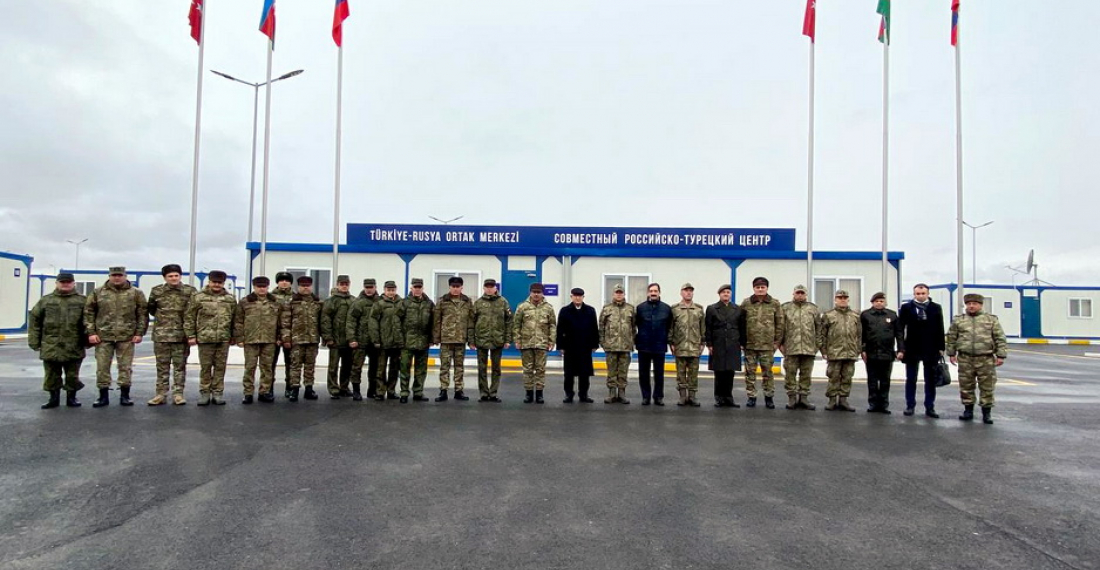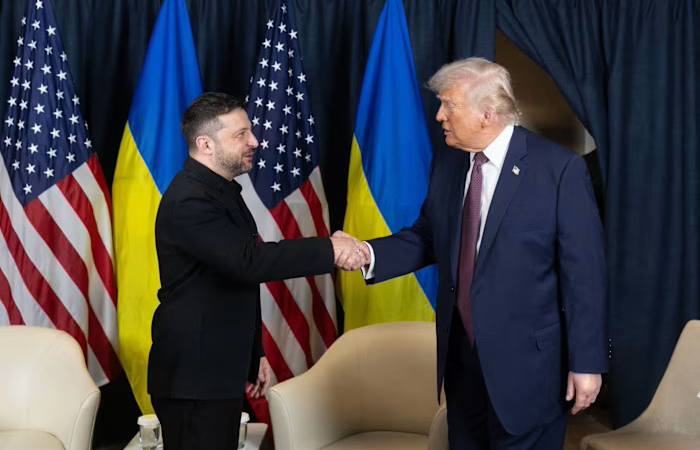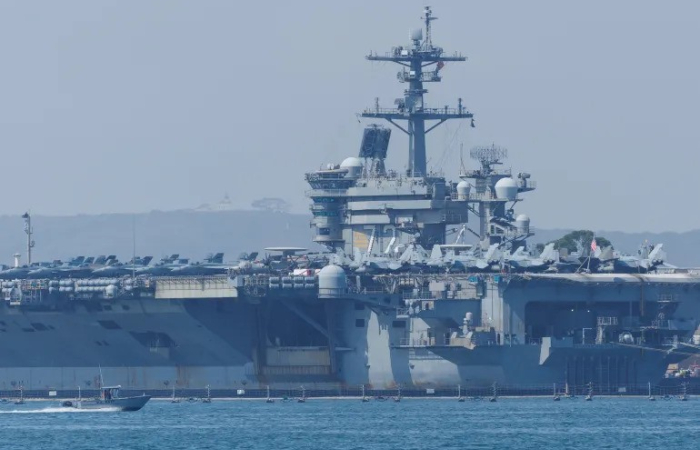"If Russia successfully resists the unprecedented pressure from the West and remains one of the main poles in the emerging multipolar world, its interests lie in balancing Turkish influence in its neighborhood, including the South Caucasus. It does not imply that Russia and Turkey will stop their economic cooperation. It simply means that Russia will seek to prevent Turkish dominance over the South Caucasus", writes Benyamin Poghosyan in this analysis on current geo-politics in the South Caucasus.
The Russian “special military operation” in Ukraine launched on February 24, 2022, has shaken global geopolitics and geoeconomics. It completely ruined Russia – West relations and resulted in unprecedented sanctions on Russia, including cutting several Russian banks from the SWIFT financial messaging system, dubbed by economists as a "financial nuclear option". NATO member countries, including the US, UK, Germany, and several east European states, supply Ukraine with various lethal weapons while rejecting Ukraine's plea for imposing a no-fly zone, as the Russian President indicated that the Kremlin would perceive that move as a declaration of war. Two rounds of Russia – Ukraine talks in Belarus brought little result, while some leaders, such as Israeli Prime Minister Bennet and Turkey's President Erdogan, sought to mediate between Russia and Ukraine. Meanwhile, Russian troops made advances despite stiff Ukraine resistance, encircling Kharkiv and Chernihiv and taking Kherson, Melitopol, and other towns.
The Russia – Ukraine war has sidelined all other conflicts in the post – Soviet space and beyond. However, regional geopolitics has not disappeared, and while the world's attention is focused on Ukraine and the ensuing Russia – West confrontation, regional conflicts continue with their dynamics. The Karabakh conflict is not an exception here.
The 2020 Karabakh war has upset the status quo in the South Caucasus. The defeat in the war has significantly reduced Armenia's geopolitical potential and has diminished Armenian role in the region. Currently, Armenia faces formidable challenges and growing ambiguity in its foreign and security policy, which have been multiplied by the war in Ukraine. Should Armenia forget about Nagorno Karabakh and push forward the normalization process with Azerbaijan and Turkey at any cost or should it elaborate and implement a strategy to prevent the final loss of Karabakh while simultaneously seeking normalization with its neighbors? What are the prospects of Armenia – Russia relations after February 2022, and what will be the long-term (15-20 years) implications of potential Azerbaijani and Turkic economic penetration into Armenia in case of full normalization of relations? It is impossible to provide reasonable answers to these questions without identifying core Armenian national interests, and soberly assessing the evolving regional security environment.
Armenian vital national interests include;
- The preservation of Nagorno Karabakh as an Armenian entity.
There are few chances for Armenia to change the new territorial status quo that emerged in the region after the 2020 Karabakh war in the foreseeable future. Thus, Armenia should concentrate its efforts to prevent the exodus of Armenians from Nagorno Karabakh and secure the uninterrupted deployment of foreign military forces there. In this context, the February 22, 2022, Russia – Azerbaijan declaration on allied interaction has significantly increased the possibility that Azerbaijan will not demand the withdrawal of Russian troops from Karabakh in 2025.
- Political, economic, and military modernization.
The primary reason for Armenia's defeat in the 2020 Karabakh war was the geostrategic blunders of the former and current Armenian authorities. However, Armenia lacked behind Azerbaijan in the last decade in economic and military terms, and the defeat in war only widened that gap. Meanwhile, Armenian state institutions are primarily inefficient and unable to solve the challenges Armenia faces. Thus, the country is in acute need of modernization.
- Restriction of Azerbaijani and Turkish economic penetration in Armenia.
It does not mean that Armenia should quit the normalization process with Turkey, reject the restoration of communications with Azerbaijan, or cancel the start of the border delimitation and demarcation process. On the contrary, normalization with both countries may help push forward the economic modernization of Armenia. It only implies that Armenia should take the necessary steps to prevent Armenia's transformation into an economic backyard of Turkey and Azerbaijan.
Progress on all three tracks requires robust domestic and foreign policy. On the external front, Armenia should carefully assess the interests of the leading players in the region – Russia, the US, and Iran. Which countries are interested in preventing Turkey's dominance in the South Caucasus? As global order enters a more turbulent stage of transformation from the post-cold war unipolar moment into the multipolar domain, several poles may emerge - the US, China, and Russia. As a mid-size power, Turkey is vying for regional influence in multiple areas and is seeking to have balanced relations with different poles, and Turkey's behavior in the current crisis is another proof of that strategy.
However, sooner or later, Ankara will have to make a geopolitical choice. The history of the Ottoman Empire and the modern Turkish Republic tells us that Turkey will never be part of either the Russian or Chinese poles. Thus, after decades of roaming, Turkey may return to its US partner and ally role. This configuration, which may happen in 5, 10, or 15 years, will inevitably bring Russia and Turkey back into the usual realm of limited cooperation and extended competition.
If Russia successfully resists the unprecedented pressure from the West and remains one of the main poles in the emerging multipolar world, its interests lie in balancing Turkish influence in its neighborhood, including the South Caucasus. It does not imply that Russia and Turkey will stop their economic cooperation. It simply means that Russia will seek to prevent Turkish dominance over the South Caucasus.
Iran is another middle power in the quest of its role in the new world order. Even as Iran and world powers are close to reaching an agreement to restore the 2015 Iran nuclear deal, Iran is unlikely to be a part of the American pole for the foreseeable future. Meanwhile, Iran does not trust Russia enough to be a part of the Russian pole. Iran will probably choose China and continue to see the US as its main adversary and seek to restrict the US direct or indirect influence in its neighborhood, including South Caucasus. The most efficient way to do that in our region is to support Russia and balance Turkey.
Thus, Russia and Iran are both interested to see less Turkish influence in the South Caucasus. They will not do that because they love Armenians or hate Turks, but because of their vital national interests. As we mentioned, Armenia is interested in normalizing relations with Azerbaijan and Turkey, and the government is making significant efforts in that direction. However, conventional wisdom suggests that Armenia should not want to see Turkish dominance in the South Caucasus. In this context, Armenia, Iran, and Russia have coinciding interests – to prevent Turkey from dominating the South Caucasus. It is a sound base for the three countries to launch a trilateral format of cooperation.
Some circles in Turkey view the establishment of the direct land corridor with Azerbaijan via the Armenian Syunik province as a contributing factor to Turkish plans to expand its role in the South Caucasus. Therefore, joint Armenia – Russia – Iran economic projects in Syunik can be a good starting point for containing Turkish ambitions.
source: Benyamin Poghosyan is the Founder and Chairman of the Center for Political and Economic Strategic Studies in Yerevan.
photo: Turkish and Russian military personnel at the opening of the Turkish-Russian Monitoring Centre established after the 44 day Karabakh War
The views expressed in opinion pieces and commentaries
do not necessarily reflect the position of commonspace.eu or its partners







